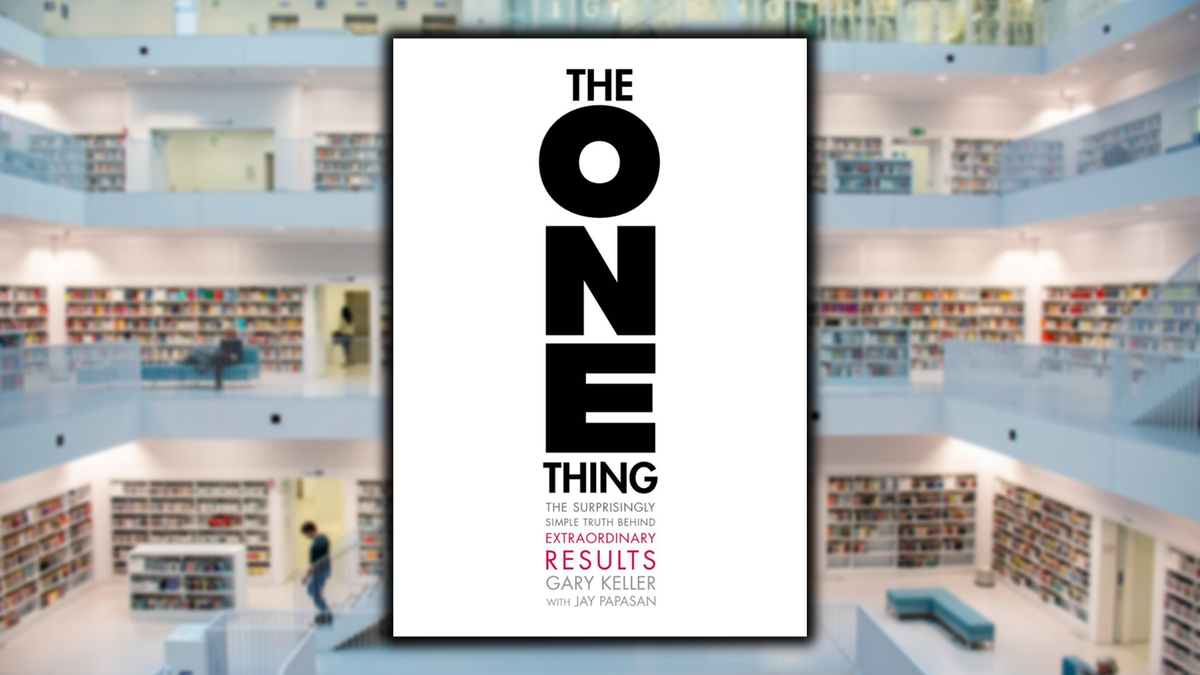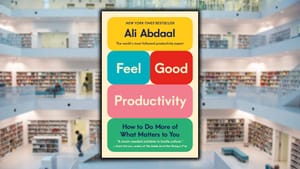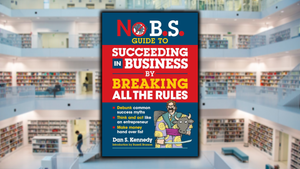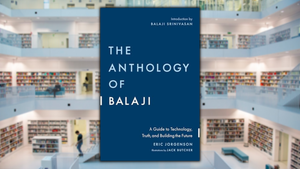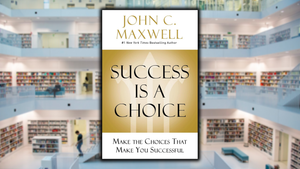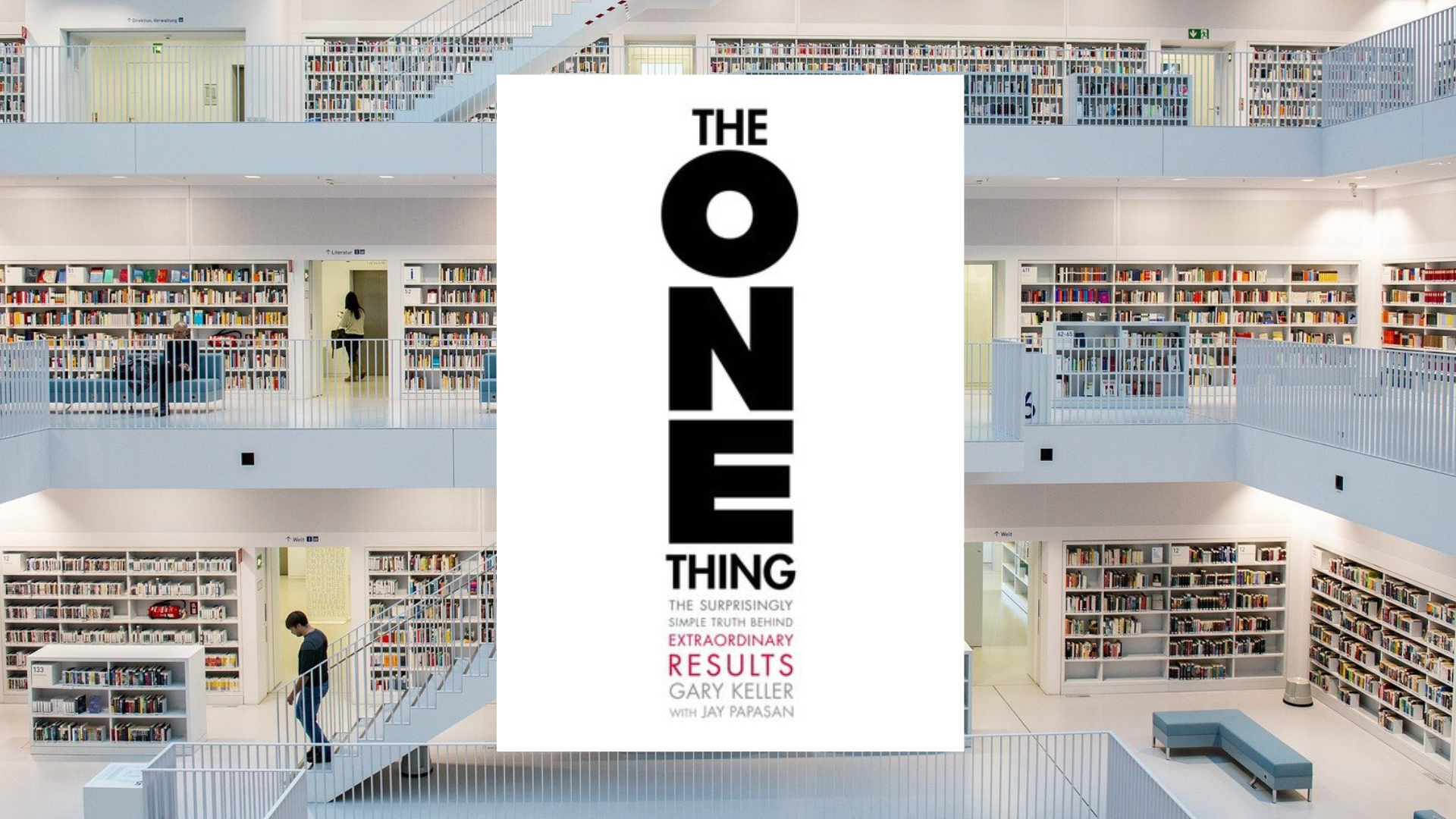
This Book is For:
*Anyone who wishes to make their life significant by narrowing down their focus to the very few activities that carry the most meaning for them
*Businesspeople who wish to accelerate their personal and corporate growth by developing the skill of distinguishing the vital few from the trivial many
*Students of life who are looking for ways to maximize their impact and their results, without burning out and getting distracted by things that aren't moving them towards their goals
Summary:
Thousands of years ago, Socrates said that the way to get to Mount Olympus was to make sure that every step you take is in that direction.
Instead of Mount Olympus (which was ancient Greek "Heaven" basically, where all the gods hung out), we can input our biggest goals and our most important work - what we want our lives to actually be about.
Similar sentiments have been expressed throughout history, such as in the Tao Te Ching, written by Lao Tzu more than 2,500 years ago. He's the one who said that a journey of a thousand miles begins with a single step.
Certainly, this idea didn't originate with Gary Keller, and it may seem strange to put the names of Socrates, Lao Tzu, and Gary together in the same sentence, but the idea of the ONE Thing is an exceptionally powerful one.
Keller argues that the key to achieving extraordinary success in life is to focus every single day, every single moment, on your ONE Thing: that one thing that, if you did it, would make everything else either easier or unnecessary, and that would propel you toward your most important goal.
The choice here is between traveling a mile in a thousand different directions, or traveling 1,000 miles in one direction.
Ironically, your ONE Thing will be split into two things, one large and the other small. Your big ONE Thing is going to be your main goal, your overarching purpose - your destination.
Your small ONE Thing, by contrast, is going to be the very next action you need to take in order to get there.
Massive goals are just fairytales if you don't have a plan in place to achieve them, and if you're constantly dealing with the immediate needs of the moment, you'll never create the breathing room necessary to discover what it is that you want your ONE Life to be about.
Another danger to avoid is the self-limiting of our own potential. Abraham Maslow said that the story of the human race is the story of men and women selling themselves short, and we do this because, historically, we have done a poor job of estimating what our limits actually are.
We limit ourselves in so many ways, and a good portion of this book is about setting our sights higher so that we don't limit ourselves unnecessarily. As Michelangelo said, “the greater danger for most of us lies not in setting our aim too high and falling short, but in setting our aim too low, and achieving our mark.”
Gary Keller illustrates this point with the examples of Arthur Guinness (the beer guy), who signed a 9,000-year lease on his first factory, and J.K. Rowling (the author of Harry Potter), who laid out all seven books in advance before even writing the first.
Keller himself knows a thing or two about a thing or two when it comes to thinking big, as he is the founder of Keller Williams, a real estate company that, at one point, was the largest real estate company in the world by agent count and second in closed sales volume and units sold.
The ONE Thing itself has made more than 300 appearances on national bestseller lists, has won 12 book awards, and has been translated into 26 languages, so these ideas continue to make an impact. It was even voted one of the Top 100 Business Books of All Time on Goodreads.
If you were to take away just one thing from The ONE Thing, it would be that almost everything is unimportant.
Almost everything in our lives is conspiring to pull us away from our most important, meaningful activities, but when we regain agency over where we place our focus and attention, extraordinary results tend to fall into place.
A criticism of the book that people have leveled against it is that it's yet another 200-page business book that can be summarized in a single sentence - but I don't think that's fair.
Not only does the extended exposure to this one big idea help to hammer it home for you, but there is also a multitude of interesting, valuable, and helpful ideas presented in the book as well.
In this breakdown, we're going to look at the value and implications of asking the "Focusing Question" multiple times per day; we're going to revisit the Pareto Principle and explore why it doesn't go far enough and what you can do with it; we're going to talk about "Goal Setting to the Now," "time blocking," and the "adjacent possible"; and we're also going to discuss the Six Lies of Success, the Four Thieves of Productivity, the Three Commitments, and more.
So yes, there's much more to this book than just a single sentence.
Understanding and implementing the ONE Thing is literally the most important thing you could ever do to achieve your goals in life and to gain clarity on how to create a life that's worth living in the first place.
In my case, my ONE Thing is reading. Everything great in my life right now - almost literally everything - can be directly attributed to my focus on my ONE Thing, and on bringing the knowledge and wisdom of the best books both into my life and into the lives of others. But it didn't happen overnight. Sure, I've read 1,000+ books as of today, but everyone starts on Page One.
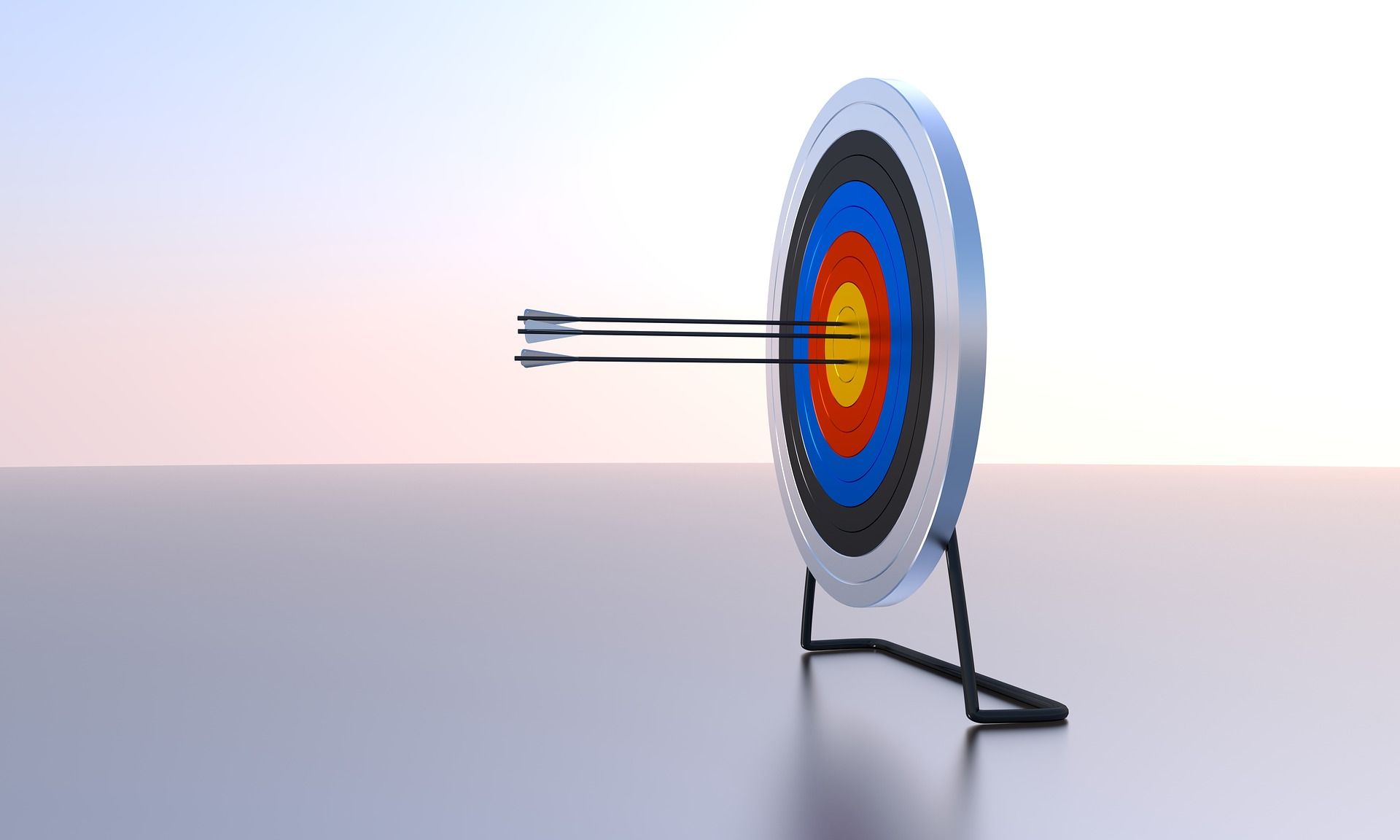
Key Ideas:
#1: The Focusing Question
"What’s the ONE Thing that I can do, such that by doing it, everything else would be either easier or unnecessary?"
This right here is what Gary Keller refers to as the "Focusing Question," and it's an exceptionally powerful one to ask - and ask, and ask again, repeatedly throughout your day, and for the rest of your life.
Essentially, it recognizes that, among every single thing that you could do, there exists just one Most Important Thing that you should do. One thing, such that by doing it, eliminates the necessity for a whole slew of other time-intensive things.
Using this Focusing Question, you can eliminate 1,000 decisions just by making one decision.
In fact, I would argue that, out of every single Key Idea found in this entire book, this one idea is the One Idea that's most important. If you take nothing else from this book except that, and if you were to act on your answer to this question over and over again throughout your life, then your life would turn out a lot better.
The key is to keep asking it, over and over and over, and in many diverse situations, until you get down to the single most important thing you could be doing with your limited time on this gorgeous planet...and then do that!
There are many more implications of this one big idea, but internalizing this one will lead to the majority of the success that you seek. As Gary Keller says:
"Where I’d had huge success, I had narrowed my concentration to one thing, and where my success varied, my focus had too."
#2: The Pareto Principle
“The majority of what you want will come from the minority of what you do.”
The 80/20 Principle asserts that a minority of causes, inputs, or efforts usually lead to a majority of the results, outputs, or rewards. It's been written about extensively, especially over the past few decades, and the applications of the principle are incredibly widespread.
The idea originates with the 19th-century Italian economist Vilfredo Pareto, who noticed that in his country, 80 percent of the wealth was appropriated by 20 percent of the population.
Now, these aren't exact numbers, and he found that the same general principle applied to much more than just wealth, but that's where it comes from.
Sometimes, 15 percent of something causes 65 percent of something else - the numbers don't have to add up to 100 - but you'll find that in many domains, a small number of causes lead to a majority of the effects.
For example, you probably know several hundred people by at least their first name, but your most meaningful relationships will be with just a few individuals. You could say, for example, that 90 percent of your meaningful relationships are with 3 percent of the people that you know. Just to put a number on it. Of course, this will be different for everybody.
In the gym, there are dozens - even hundreds - of different exercises you could do, training splits you could run, protocols you could follow, etc. But if your goal is to gain muscle, then just focusing on compound lifts like the squat, bench press, and deadlift is going to give you the majority of your results.
Same with dieting to lose weight. There are protein powders, fat loss pills, expensive programs, fad diets - all this ridiculous stuff. But if you cut through all the noise, success will boil down to eating less and moving more. Just focusing on those things is going to lead to the majority of your fat loss. That's the Pareto Principle.
The principle never announces itself, but if you look for it, you'll start to find it everywhere. The 10 most popular authors of all time have sold like 99 percent of all the books, etc. You get the idea.
Once you do see it, however, you can start becoming obsessed with using it to accelerate your forward momentum and achieve your goals in record time.
You'll recognize it as the lever you can pull on that will give you the most reward for the least amount of effort or time. The most productive - not to mention the most healthy and successful - people on the planet pull the lever of the Pareto Principle in every area of their lives that is important to them.
#3: The Pareto Principle - Revisited
“Keep going. You can actually take 20 percent of the 20 percent of the 20 percent and continue until you get to the single most important thing! No matter the task, mission, or goal. Big or small.
Start with as large a list as you want, but develop the mindset that you will whittle your way from there to the critical few and not stop until you end with the essential ONE. The imperative ONE. The ONE Thing."
But wait, there's more! (I've always wanted to say that). You can actually take the 20 percent of your original sample and divide it further into its 20 percent, and on and on from there. That's how you really start generating crazy returns.
This works for relationships, business, fitness, health - everything.
Say that you have 100 friends that you enjoy spending time with. If we're using simple numbers like 80/20, then out of those 100 people, 20 of them will be people with whom you share the deepest, most intimate, and most fulfilling connection. So it makes to prioritize those relationships. But you can take it even further and think about which 4 people out of that 20 are your really, really wonderful friends. After that, the math gets kinda weird ("Pick your 0.8 best friends out of those 4!"), but let's just round up, shall we?
In business, you can see the same dynamic at work. If you are, say, an online creator and you're looking to build your fan base, there are any number of things you could do in order to bring attention to your work and to support yourself as a creative.
You can go market yourself on Facebook, Instagram, Twitter, YouTube, etc. You could do guest posting and podcast interviews and giveaways, and you could write a weekly newsletter - there are literally thousands of things you can do to build an audience.
But out of everything you could do and every platform you could be on, there are going to be just a few that will give you the greatest odds of success. And out of those platforms, there are just a few where your specific skills and personality can really shine. Keep asking the Focusing Question until you discover what those platforms are.
At the end of this whole process, you'll have just one to-do list item, just one relationship, just one business growth strategy, and just one thing that you can do that will make the most difference to whatever it is that you're doing.
You just need to have the initial discipline to get started - and the habits to keep going - that will keep you asking the Focusing Question until you eliminate everything that's not the absolute best thing you could be doing.
And remember, if you're stuck on what to do next, finding and doing the absolute most important thing is always the absolute most important thing.
#4: The Lead Domino
“Find the lead domino, and whack away at it until it falls.”
Success is sequential and exponential. Eventually, if you keep doing the right thing for long enough, you're going to reach a point where the flood gates open and everything starts to fall into place. Like a domino!
A single domino can bring down another domino that’s 50% larger, an idea that was tested in 2001 with 8 dominoes made of plywood, each one 50% larger than the one before. The first domino was just two inches tall and the last one was thirty-six inches tall. The important thing to realize here is that in your life, you are the first domino.
Success is very similar to a domino effect, and where at first it's a drip, drip, drip, that momentum will build on itself until you reach escape velocity and enter into a phase of exponential growth.
You start off with zero YouTube subscribers, and then you get one, and then five, and then 17, and then 63, and then 112, and then 309...and even though you're looking at all these other YouTubers with their millions of subscribers, you just need to have faith that if you stay consistent and continue to improve, those 309 people will snowball into 300,000.
Whatever it is, you just have to stay in it long enough for the domino effect to take hold. Nobody wants to hear that, but it's true. People everywhere want "30-second abs" and instant millions and all the rest of it, but that's not how this works. As Keller explains:
"You do the right thing and then you do the next right thing. Over time it adds up, and the geometric potential of success is unleashed. The domino effect applies to the big picture, like your work or your business, and it applies to the smallest moment in each day when you're trying to decide what to do next.
Success builds on success, and as this happens, over and over, you move toward the highest success possible.
When you see someone who has a lot of knowledge, they learned it over time. When you see someone who has a lot of skills, they developed them over time. When you see someone who has done a lot, they accomplished it over time. When you see someone who has a lot of money, they earned it over time.
The key is over time. Success is built sequentially. It's one thing at a time."
#5: What If I Don't Know What My ONE Thing Is?
“Doing the most important thing is always the most important thing.”
As explained in Key Idea #3, if you don't know what your ONE Thing is, then your ONE Thing is to find it.
That's the very next thing to do if you don't know what you're supposed to do: you watch, observe, listen, think, maybe experiment a little bit, and then you use all that input to help you decide on your ONE Thing.
I mean, why would you ever want to do the second most important thing?
Not having all the answers is perfectly fine - no one does - but if you ever find yourself wondering what is the most important thing you could be doing, then you're exactly where you need to be. The answers will come.
#6: Goal Setting to the Now
When a novelist is crafting a story, most of them don't just start from the beginning and haphazardly move forward, making it up as they go along. They work backward from the end. Having already figured out where it is they want their character to go, now they set about making sure they get there.
Effective goal setting works the same way. We set a goal, however far ahead in the future, and then we go back in time to figure out how we got there.
"Goal Setting to the Now" is about figuring out exactly where we want to go, and then connecting the dots backward until we know exactly what we need to do next. This is how high-achievers set goals.
With most goals, it's going to be a lot harder and take a lot longer than we think it will - and so we have to be prepared for that. In Grant Cardone's book, The 10X Rule, he says that the target is never the problem; rather, the problem is our level of action, or what we're willing to do to get there.
Working backward from the end also helps us uncover additional obstacles during the planning process so we have a better idea of what's ahead and how we're going to handle it.
For a practical example, we can take someone whose life goal is to travel on a commercial flight to space. Now, that's a pretty massive goal, but it's doable if we have a process for figuring out what we need to do today, this week, this month, next year, and in the years until that goal is achieved.
But if we were to jump ahead from "now" to "someday," we wouldn't be able to clearly see the path ahead or figure out our next steps.
At the current time, Virgin Galactic is selling seats on their first commercial flight for $250,000, which is prohibitively high for most people. Plus, there's a medical exam, and presumably a psychiatric exam as well! It takes a lot of organization to go to space, but the goal is within reach. Our hypothetical spacefarer just needs to map out a path to the goal.
They could say to themselves, "Okay, I'm 40 years old and I want to go into outer space before my fiftieth birthday. I need $250k, I need to get my health in order, and I need to prepare myself psychologically - plus do all the other logistical stuff that's going to come up in the process. What do I need to do to make that happen?"
And then they would work backward!
They would aim to reach a target weight by such and such a date; have a certain amount of money saved up by X year. Then, they'd keep moving backward until they got to this year:
"What do I need to make happen this year to give me the best possible shot at achieving this goal?"
Maybe the answer is that they need to get a promotion at work so that they can then start saving and investing and all the rest of it.
"Okay, well what do I need to do this month?"
How about starting by dropping just 2 pounds this month and opening a savings account? That's small enough that it's completely doable by the end of the month, and then when we get down to today, it can be something as simple as searching online for a bank with the highest interest rate, borrowing a book on investing, and getting a gym membership.
That's Goal Setting to the Now. You're taking a big, huge goal and connecting it all the way down to a small, specific action you can take in the here and now that will set you on the path.
Here's what this looks like all laid out:
What's the ONE Thing I want to do Someday?
Based on my Someday Goal, what's the ONE Thing I can do in the next five years?
Based on my Five-Year Goal, what's the ONE Thing I can do this year?
Based on my One-Year Goal, what's the ONE Thing I can do this month?
Based on my Monthly Goal, what's the ONE Thing I can do this week?
Based on my Weekly Goal, what's the ONE Thing I can do today?
Based on my Daily Goal, what's the ONE Thing I can do RIGHT NOW?
Writing this out in advance takes the guesswork out of goal setting and gives you a specific plan of action you can put into effect immediately to make meaningful progress on your biggest goals and dreams.
#7: Time Blocking
Time blocking will become your secret weapon in service of ultimate productivity. It refers to the practice - the discipline - of carving out a few hours during each and every day and dedicating it exclusively to the pursuit of your highest ambitions. It's an appointment that you keep with yourself and guard with your life.
Gary Keller suggests aiming for four hours of focused work, something that Cal Newport calls deep work. It's work that's focused, and purposeful, and that will really move the needle on your biggest goals.
Sustaining that level of concentration is not something that people can do indefinitely, and there does seem to be an upper limit beyond which additional hours don't add so much. There's a point of diminishing returns when it comes to deep work, but four hours is plenty.
Imagine if you put four hours a day, five days a week, 40 weeks a year, into accomplishing your greatest dream, and didn't stop until you achieved it! That's 800 hours a year spent working on something that you've identified as the most important thing you could possibly be doing, whether that's a novel, a skill, or something else.
Malcolm Gladwell is known for popularizing what he called the 10,000 Hour Rule, which states that elite performance in any field requires about 10,000 hours (not an exact number, obviously) of deliberate practice - or deep work, as we call it now. At 800 hours a year, you would become the best in the entire world at your chosen endeavor in 12.5 years. Suddenly, mastery and stunning achievement don't seem so mythical.
You don't have to throw yourself into doing four hours a day of deep work immediately - you can work up to it - but it's a worthy goal. Even if you missed the odd day here and there, you could be among the best ever in your chosen thing in 20 years. The time is going to pass anyway, so why not just go for it?
Gary Keller suggests time-blocking three different things. First, you should time-block your time off. Rest, recovery, and recuperation! They're so critically important to lasting, enduring success. Burnout is very real, and no one is immune, so make sure that you're spending plenty of time recovering from your work sessions so that you can go full speed ahead for many years.
Next, he suggests time-blocking your ONE Thing, which of course is what you'll be working on during deep work. And then finally, he suggests time-blocking the planning process itself and making sure that you spend an adequate amount of time mapping out the week, month, and year ahead.
Making time for rest, deep work, and planning, is so incredibly important to get right, and protecting time for your most important thing is the most important thing.
#8: The 6 Lies of Success
In the book, Gary Keller identifies 6 Lies of Success that prevent people from living in alignment with the ONE Thing philosophy. He relates how myths and mistruths keep getting tossed around until eventually, people start to believe them, even though they shouldn't.
The bigger problem is that we then take these false beliefs and base important decisions on them, when in fact the truth is something completely different. So, as you tread the path to success, watch out for these six lies:
#1: Everything Matters Equally. No! Wrong! Everything does not matter equally, and you're doing a terrible disservice to your productivity so long as you treat everything on your to-do list as though it deserves to be there.
You could waste a whole day checking off meaningless tasks that might make you feel good to complete but aren't moving you anywhere toward where you want to go. Eliminate them however you can, and focus exclusively on your ONE Thing.
#2: Multitasking. It doesn't exist. It's a lie! What's actually happening when you "multitask" is that your brain switches back and forth between tasks really fast, never fully concentrating on either of them. What's more, there's a "switching cost" involved - some researchers says 28% - which causes you to perform worse on both tasks.
It's even been found that having an idle conversation while you're driving can result in as much as 40 percent loss of focus, basically the same as being drunk. You wouldn't want a surgeon "multitasking" while operating on your heart, so don't multitask with your most important work.
#3: A Disciplined Life. You don't have to be disciplined every moment of every day in order to achieve your goals. You just have to be disciplined for long enough to allow habit to take over.
Self-discipline is incredibly important, but just like willpower, it's taxing and not always reliable. Habits, by definition, run on autopilot, allowing you to focus on other things. So use an initial spark of willpower or self-discipline to start a habit, and then ride those habits to success.
#4: Willpower is Always on Will-Call. Willpower is a limited but renewable resource, and it waxes and wanes throughout the day depending on a variety of factors, from how much sleep you got the night before, to your blood sugar levels.
There's also something called "decision fatigue," which taxes your willpower every time you make a decision to do one thing instead of another or exert willpower to stop yourself from doing something else.
The best thing to do here is to ensure you get plenty of rest, drink water, opt for complex carbs instead of garbage calories, and maintain somewhat even blood sugar. That way you won't blow through your vital reserves of willpower before accomplishing your most important work.
#5: A Balanced Life. There's quite a bit wrong with the concept of "work-life balance" as well. For one thing, no one who puts 10,000 hours into something that's meaningful to them could ever be considered "balanced."
It's not that they're "unhealthy," but rather that they've chosen to go deep on the ONE Thing they want their life to be about, and are willing to let a few other, less important things slide in the process.
Magic happens at the extremes, and while there's nothing inherently wrong with the idea of balance, extreme results are rarely achieved by balanced people.
#6: Big is Bad. Growing up, we're told that "you can do anything," or "you can be whatever you want," but then, when we get older, those same people try to discourage us from ever dreaming at all. We're told to be "realistic" and to be "reasonable."
I would encourage you to consider, however, that since we have almost zero idea what our limits actually are, we also have no idea about whether we're being "reasonable" or not. So it's basically a waste of time thinking about it.
No one can tell you what your ultimate ceiling for achievement is, and so you should never let anyone tell you to be more realistic. They have no idea what's possible for you, and frankly, neither do you. Accept the challenge and you will grow to meet it. As Grant Cardone says, the target is never the problem. You just have to go 10X!
#9: Balancing and Counterbalancing
“Whether or not to go out of balance isn't really the question. The question is: 'Do you go short or long?'
In your personal life, go short and avoid long periods where you're out of balance. Going short lets you stay connected to all the things that matter most and move them along together.
In your professional life, go long and make peace with the idea that the pursuit of extraordinary results may require you to be out of balance for long periods.
Going long allows you to focus on what matters most, even at the expense of other, lesser priorities. In your personal life, nothing gets left behind. At work, it's required."
It's extremely difficult to be both balanced and wildly successful. It's fairly typical, in fact, to find people who have it all together in one area of their lives but struggle pitifully in another area.
It's possible to "have it all," but it's rarer than most people think, so you have rich people with no social life and hardly any close friends, people who are in spectacular shape but who are flat broke, etc.
But Gary Keller introduces the idea of going "short" and "long" in both your personal and professional life, and finding areas of counterbalance between periods of imbalance. The idea is solid, so let's go through it together.
In the context of work, you have to be okay with the fact of chaos, and when you focus for four hours a day on your most important work, it's damn near inevitable that you're going to have to let a few things slide - or pile up (pick your metaphor).
Maybe you won't be able to hit Inbox Zero by the end of every workday, or keep up on all the latest meeting notes, but you'll be "out of balance" making consistent, meaningful progress on your most important work. You can "counterbalance" occasionally and catch up on that stuff at a later date, but by definition, your most important work is your most important work.
When it comes to the interplay between your work and your personal life, you don't want to go too long. It's tragic, but it's also too common for people to plug away at a professional goal for 10+ years, reach it, and find that they're alienated from anyone and everyone that whom they could share their victory with. So you want to counterbalance your personal life quite often when work starts to take over, before diving back into imbalance on occasion.
Within your personal life, you virtually never want to go long. Spend time with the people you love every single day; don't let resentment creep into your relationships; let people know that you care about them and that you'll be there for them. Stay on top of your health, because if you don't have that, you have nothing. As Schopenhauer said truthfully, a healthy beggar is happier than an ailing king.
It's not really a question of staying "balanced" in your life, but rather, it's about how long you're willing to be imbalanced, and how easily you can recognize when it's time to introduce counterbalance to a certain area of your life and stabilize yourself before things become damaged beyond repair.
#10: The Four Thieves of Productivity
Despite our best efforts, there are four "thieves" that could derail our attempts to get our most important work done before we ever even had a chance. They are:
#1: Inability to Say No. It's been said that one "yes" has to be defended by 1,000 "nos," and I'd say that's fairly accurate! There are many reasons why we say yes to things that we will never have time for, but as hard as it can be to let someone down, or pass up a potentially lucrative opportunity, the world will not make it easy for us to achieve our ONE Thing.
So, work on your ability - and willingness - to say no, but also realize that you don't have to be a jerk about it, and even though people may be upset or disappointed in the moment, they will come to respect you more if they see that you are a person with well-defined boundaries and a clear sense of what's important.
#2: Fear of Chaos. As mentioned in the previous Key Idea, chaos will inevitably come to visit you once you've settled down to work on your ONE Thing. It will come in the form of missed phone calls, unreturned emails, inessential to-dos piling up, and more.
But, crucially, you have to be okay with that if you ever want to have a chance to accomplish something great. I won't beat the idea to death, but your most important work is the ONLY THING YOU NEED TO DO, and a lot of the chaos will resolve itself on its own. By next year, you won't even remember that thing that seemed so critically important today that you were tempted to put off your ONE Thing.
#3: Poor Health Habits. If you don't have the energy and vitality - the health - to attack your ONE Thing relentlessly, you're defeated before you even begin. If you're falling asleep at your desk, too tired to type, much less take on the world, you're going to find it exceptionally difficult to find success in anything.
I would argue that this underlies everything else, because if you don't have your health, what do you have? Nothing! Taking control of your health now will also improve the quality of every single subsequent experience, kicking off that domino effect we talked about earlier. Please, please, please get this one right - not for anyone else, but for yourself!
#4: Poor Environment. Importantly, environment includes both people and place. It's where you are physically, of course - and you want to do all the obvious stuff like make sure your workplace is free of distraction, etc. - but it's all about the quality of the people you have around you and whether you're all moving in the same direction.
If you have a group of friends who are negative, talking badly about others and just generally not caring about anything, get them out of your life. It can be painful to cut ties, but you also have to think about the negative impact that person's going to have on your future.
#11: The Adjacent Possible
“The truth about success is that our ability to achieve extraordinary results in the future lies in stringing together powerful moments, one after the other. What you do in any given moment determines what you experience in the next. Your 'present now' and all 'future nows' are undeniably determined by the priority you live in the moment."
One of the most exciting ideas I've ever come across is called the "adjacent possible," which I first learned about in the book, Where Good Ideas Come From, by Steven Johnson. You can think of the adjacent possible as the next visible or accessible step in your evolution: the most reasonable, likely, or beneficial move you can make on your way to getting where you want to go.
For example, when you're first learning to read, a book like Crime and Punishment, by Dostoyevsky is going to be way above your current ability, because you don't even know your alphabet yet!
So, the adjacent possible for you is learning what those 26 characters mean and how they string together to form words and ideas.
To move towards full understanding, you're going to have to go from total ignorance of the written word to an understanding of grammar and syntax, to a basic level of psychological insight (to be able to interpret Raskolnikov's actions and beliefs), all the way up to knowing as much as you need to know in order to fully appreciate the great work of literature known as Crime and Punishment.
There's literally no way that you could have prepared yourself for such an advanced book from your starting point of total ignorance, but as you moved through the adjacent possible, whole new worlds of ideas and possibilities opened up for you.
Well, the whole world is like that! Once you take a step or move through a door, there you'll find new territory, new rooms that you enter that you never would have had access to had you not entered that first door. Then you notice that there are other doors leading outward from this room (or idea, success, etc.) and that as you step forward and move through the world - building on your success - new possibilities are open for you that were hidden before.
We have no idea how many rooms there are out there, but moving through the adjacent possible is just one more thing that makes life worth living.
#12: The ONE Thing and the Purpose of Your Life
“When you ask yourself, 'What's the ONE Thing I can do in my life that would mean the most to me and the world, such that by doing it everything else would be easier or unnecessary?' you're using the power of the ONE Thing to bring purpose to your life."

Book Notes:
"Be like a postage stamp - stick to one thing until you get there."
-Josh Billings
“Extraordinary results happen only when you give the best you have to become the best you can be at your most important work.”
"Extraordinary results are directly determined by how narrow you can make your focus."
"The problem with trying to do too much is that even if it works, adding more to your work and your life without cutting anything brings a lot of bad with it: missed deadlines, disappointing results, high stress, long hours, lost sleep, poor diet, no exercise, and missed moments with family and friends - all in the name of going after something that is easier to get than you might imagine."
"Passion for something leads to disproportionate time practicing or working at it. That time spent eventually translates to skill, and when skill improves, results improve. Better results generally lead to more enjoyment, and more passion and more time are invested. It can be a virtuous cycle all the way to extraordinary results."
“Achievers always work from a clear sense of priority.”
“There will always be just a few things that matter more than the rest, and out of those, one will matter most."
“Whether you say 'later' or 'never,' the point is to say 'not now' to anything else you could do until your most important work is done."
“Multitasking is merely the opportunity to screw up more than one thing at a time."
-Steve Uzzell
“Why would we even consider multitasking when we’re doing our most important work?”
“Success is actually a short race - a sprint fueled by discipline just long enough for habit to kick in and take over."
“The hard stuff becomes habit, and habit makes the hard stuff easy.”
“Imagine life is a game in which you are juggling five balls. The balls are called work, family, health, friends, and integrity. And you're keeping all of them in the air. But one day you finally come to understand that work is a rubber ball. If you drop it, it will bounce back. The other four balls - family, health, friends, integrity - are made of glass. If you drop one of these, it will be irrevocably scuffed, nicked, perhaps even shattered."
-James Patterson
“An extraordinary life is a counterbalancing act.”
“We are kept from our goal, not by obstacles but by a clear path to a lesser goal."
-Robert Brault
“Most people are familiar with the Chinese proverb: 'A journey of a thousand miles must begin with a single step.' They just never stop to fully appreciate that if this is true, then the wrong first step begins a journey that could end as far as two thousand miles from where they want to be. The Focusing Question helps keep your first step from being a misstep."
“Anyone who dreams of an uncommon life eventually discovers there is no choice but to seek an uncommon approach to living it."
"Most people struggle to comprehend how many things don't need to be done, if they would just start by doing the right thing."
“People do not decide their futures, they decide their habits and their habits decide their futures."
-F.M. Alexander
“Our purpose sets our priority and our priority determines the productivity our actions produce."
“I believe that financially wealthy people are those who have enough money coming in without having to work to finance their purpose in life. Now, please realize that this definition presents a challenge to anyone who accepts it. To be financially wealthy you must have a purpose for your life. In other words, without purpose, you'll never know when you have enough money, and you can never be financially wealthy."
"For more money to continue to motivate you will depend on why you want more."
“The sun’s rays do not burn until brought to a focus.”
“If disproportionate results come from one activity, then you must give that one activity disproportionate time."
“Resting is as important as working. There are a few examples of successful people who violate this, but they are not our role models. They succeed in spite of how they rest and renew - not because of it."
“Nobody who ever gave his best regretted it.”
“Achieving extraordinary results through time blocking requires three commitments. First, you must adopt the mindset of someone seeking mastery. Mastery is a commitment to becoming your best, so to achieve extraordinary results you must embrace the extraordinary effort it represents.
Second, you must continually seek the very best ways of doing things. Nothing is more futile than doing your best using an approach that can't deliver results equal to your effort.
And last, you must be willing to be held accountable for doing everything you can to achieve your ONE Thing. Live these commitments and you give yourself a fighting chance to experience extraordinary results."
“When you can see mastery as a path you go down instead of a destination you arrive at, it starts to feel accessible and attainable. Most assume mastery is an end result, but at its core, mastery is a way of thinking, a way of acting, and a journey you experience. When what you've chosen to master is the right thing, then pursuing mastery of it will make everything else you do either easier or no longer necessary. That's why what you choose to master matters."
“Focus is a matter of deciding what things you’re not going to do.”
“You can say no with respect, you can say no promptly, and you can say no with a lead to someone who might say yes. But just saying yes because you can't bear the short-term pain of saying no is not going to help you do the work."
-Seth Godin
“If you don’t make your life about what you say yes to, then it will almost certainly become what you intended to say no to."
“When you argue for your limitations, you get to keep them.”
“If you don’t take care of your body, where will you live?”
“When you spend the early hours energizing yourself, you get pulled through the rest of the day with little additional effort. You're not focused on having a perfect day all day, but on having an energized start to each day. If you can have a highly productive day until noon, the rest of the day falls easily into place. That's positive energy creating positive momentum."
"If you lose an hour in the morning, you'll be chasing it all day."
“What you see and hear from the time your alarm rings to when your time block begins ultimately determines if you get there, and whether you're ready to be productive when you do."
The Highly Productive Person's Daily Energy Plan:
Meditate and pray for spiritual energy.
Eat right, exercise, and sleep sufficiently for physical energy.
Hug, kiss, and laugh with loved ones for emotional energy.
Set goals, plan, and calendar for mental energy.
Time block your ONE Thing for business energy.
“I cannot believe that the purpose of life is to be happy. I think the purpose of life is to be useful, to be responsible, to be compassionate. It is, above all, to matter, to count, to stand for something, to have made some difference that you lived at all."
-Leo Rosten
"When what you go for is as vast as you can possibly envision, you'll be living the biggest life you can possibly live."
“Write down your current income. Then multiply it by a number: 2, 4, 10, 20 - it doesn't matter. Just pick one, multiply your income by it, and write down the new number. Looking at it and ignoring whether you're frightened or excited, ask yourself, 'Will my current actions get me to this number in the next five years?' If they will, then keep doubling the number until they won't. If you then make your actions match your answer, you'll be living large."
"It's only when you can imagine a bigger life that you can ever hope to have one."
“Years ago, I wanted an apple tree on our property. Turns out you can't buy a fully mature one. The only option I had was to buy a small one and grow it. I could think big, but I had no choice but to start small. So I did, and five years later we had apples. But because I thought as big as I could, guess what? You got it. I didn't just plant one. Today - we have an orchard.
Your life is like this. You don't get a fully mature one. You get a small one and the opportunity to grow it - if you want to. Think small and you're life's likely to stay small. Think big and your life has a chance to grow big. The choice is yours.
When you choose a big life, by default, you'll have to go small to get there. You must survey your choices, narrow your options, line up your priorities, and do what matters most. You must go small. You must find your ONE Thing."
“A life worth living might be measured in many ways, but the one way that stands above all others is living a life of no regrets.”
"Regret is the ultimate pain."
“Remember that the secret to extraordinary results is to ask a very big and specific question that leads you to one very small and tightly focused answer. If you try to do everything, you could wind up with nothing. If you try to do just ONE Thing, the right ONE Thing, you could wind up with everything you ever wanted."

Important Insights from Related Books:
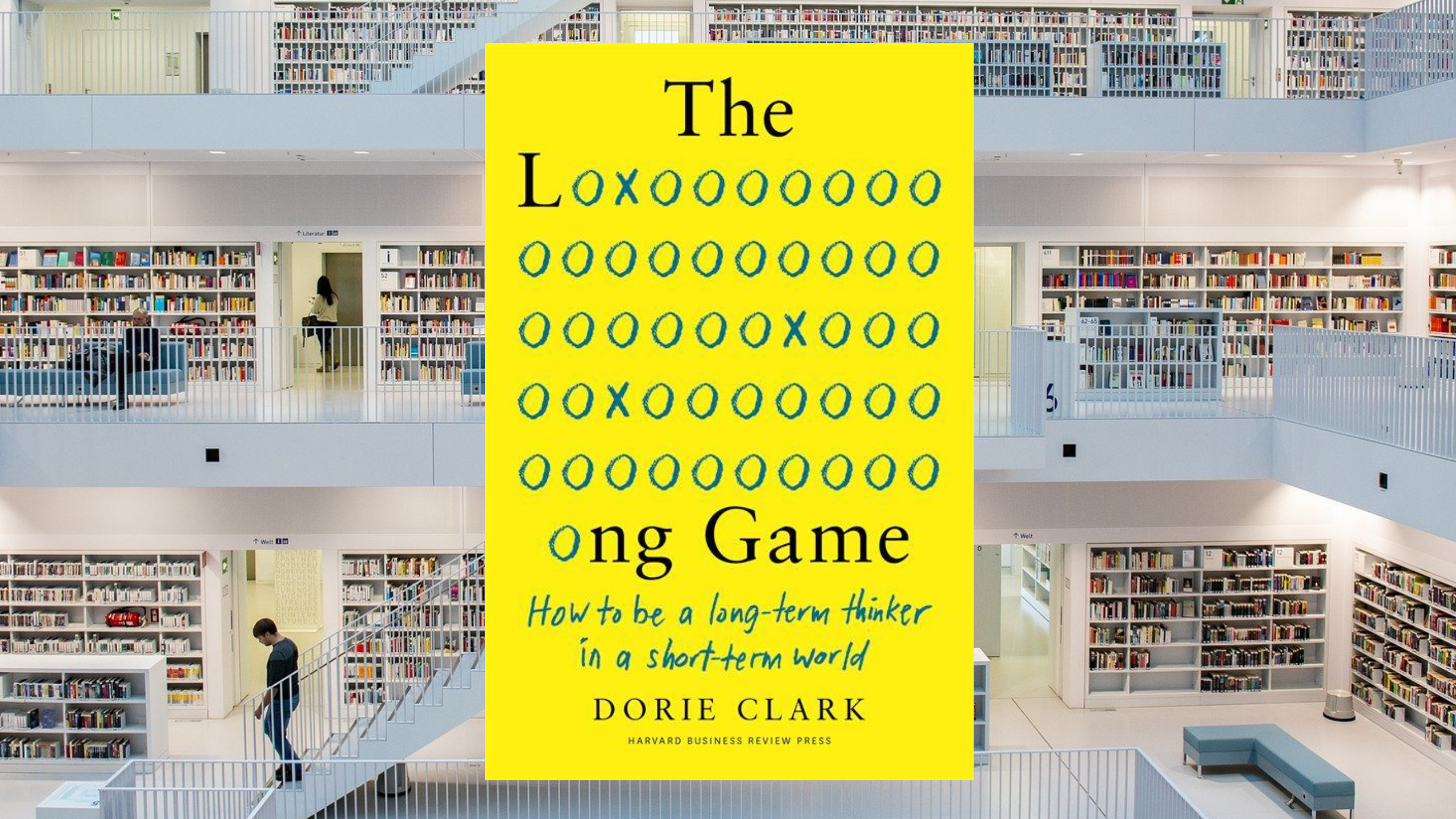
The Long Game, by Dorie Clark:
While the rest of the world thinks we're playing checkers, readers of this book will know that we're actually playing chess instead. The greatest Grand Masters in chess plan many, many moves ahead, and the best players in the game of life tend to do the same thing. That's what The Long Game is all about.
The modern world, however, continues to prioritize short-term gratification over long-term success and fulfillment, and we see evidence of this everywhere. There are the consumer and student debt crises, with people owing thousands of dollars (and sometimes much more) on their credit cards due to poor planning and impulse shopping. There are the billions of hours being wasted each day on mindless social media scrolling and the obesity epidemic overwhelming our healthcare systems worldwide.
What it boils down to is people taking the easy way out, doing what feels good in the moment but leads to nothing but trouble and dissatisfaction in the long term. As they say, "Hard choices, easy life. Easy choices, hard life." Keeping the end in mind and making good short-term decisions is hard, but it's nothing compared to the hardship of looking back on your one and only life with regret.
Sample Quotes from the Book:
“We radically underestimate what we can accomplish in a decade.”
“The whole point of playing the long game is understanding that ridiculous goals are ridiculous right now – not forever. When we force ourselves to take our goals to extremes – What would ultimate success look like? – we can create an honest road map for ourselves. It might take five years, or ten, or twenty. But that time will pass anyway. If a goal is worth pursuing, it’s worth pursuing the version of it we actually want – not one that’s watered down to protect our ego.”
“In the moment, it’s impossible to tell whether it’s not working or whether it’s not working yet.”
Read the Full Breakdown: The Long Game, by Dorie Clark
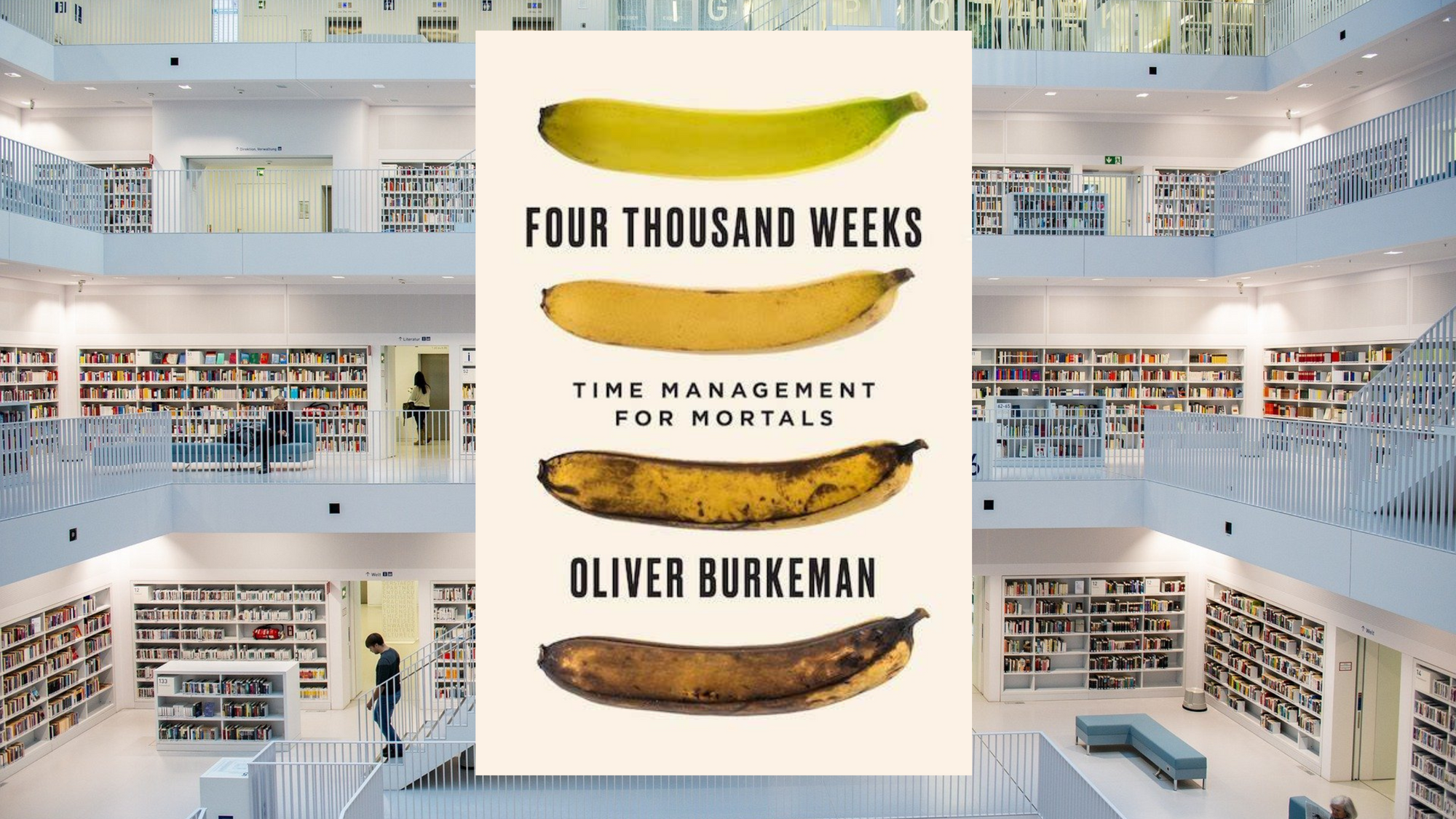
Four Thousand Weeks, by Oliver Burkeman:
Adam Grant said that this is the most important book ever written about time management, and I’m certainly inclined to agree. In the opening pages of Four Thousand Weeks, Oliver Burkeman gets things started with a jolting, yet indisputable claim:
“The average human lifespan is absurdly, terrifyingly, insultingly short...But you? Assuming you live to be eighty, you’ll have had about four thousand weeks.”
Burkeman’s approach to time management has always been the “negative” one, by which I mean operating by negation – eliminating rather than adding. He suggests giving up the very idea that we could ever live up to the impossible expectations imposed on us by ourselves and others, rather than stacking impossible commitments and doomed promises onto an already crumbling structure.
You’re never going to get to a point where you feel like you’re totally on top of everything. The very effort is wearing us out, stressing us out, and leading us to waste our absurdly, terrifyingly short lives on trivia and nonsense.
Sample Quotes from the Book:
“The more you try to manage your time with the goal of achieving a feeling of total control, and freedom from the inevitable constraints of being human, the more stressful, empty, and frustrating life gets.
But the more you confront the facts of finitude instead – and work with them, rather than against them – the more productive, meaningful, and joyful life becomes."
“The world is bursting with wonder, and yet it’s the rare productivity guru who seems to have considered the possibility that the ultimate point of all our frenetic doing might be to experience more of that wonder.”
“The more firmly you believe it ought to be possible to find time for everything, the less pressure you’ll feel to ask whether any given activity is the best use for a portion of your time.”
Read the Full Breakdown: Four Thousand Weeks, by Oliver Burkeman
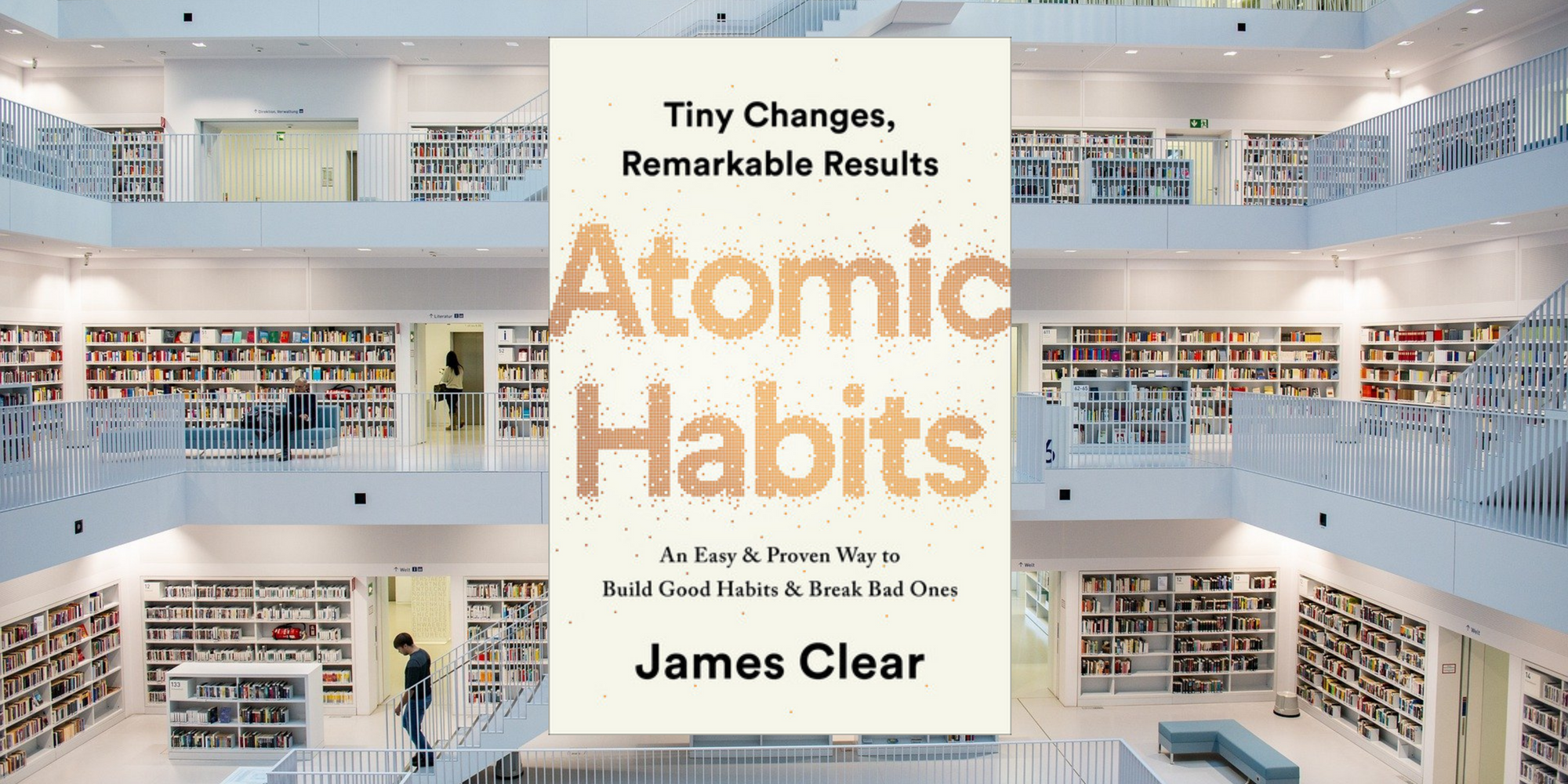
Atomic Habits, by James Clear:
I would call Atomic Habits the definitive book on habits. It’s a 4-million-copy bestseller that I believe has lived up to all the hype, and I ended up with about 8 pages of notes, most of which have been reproduced below. I mean, this thing is packed with everything you need to know in order to set yourself up for every kind of success in the future.
One of the most powerful ideas for me was the idea that we should be far more concerned about our current trajectory than with our current results.
This idea stuck with me so powerfully, in fact, that it still pops into my head, unbidden, more than a year after I first read the book. The fact is that it takes time to get where we want to be in life, but the only thing we have absolute control over is the direction in which we’re heading.
Sample Quotes from the Book:
"The quality of our lives depends on the qualities of our habits."
"Habits are the compound interest of self-improvement. The same way that money multiplies through compound interest, the effects of your habits multiply as you repeat them.
They seem to make little difference on any given day, and yet the impact they deliver over the months and years can be enormous. It is only when looking back two, five, or perhaps ten years later that the value of good habits and the cost of bad ones becomes strikingly apparent."
"If you want to predict where you'll end up in life, all you have to do is follow the curve of tiny gains or tiny losses, and see how your daily choices will compound ten or twenty years down the line."
Read the Full Breakdown: Atomic Habits, by James Clear
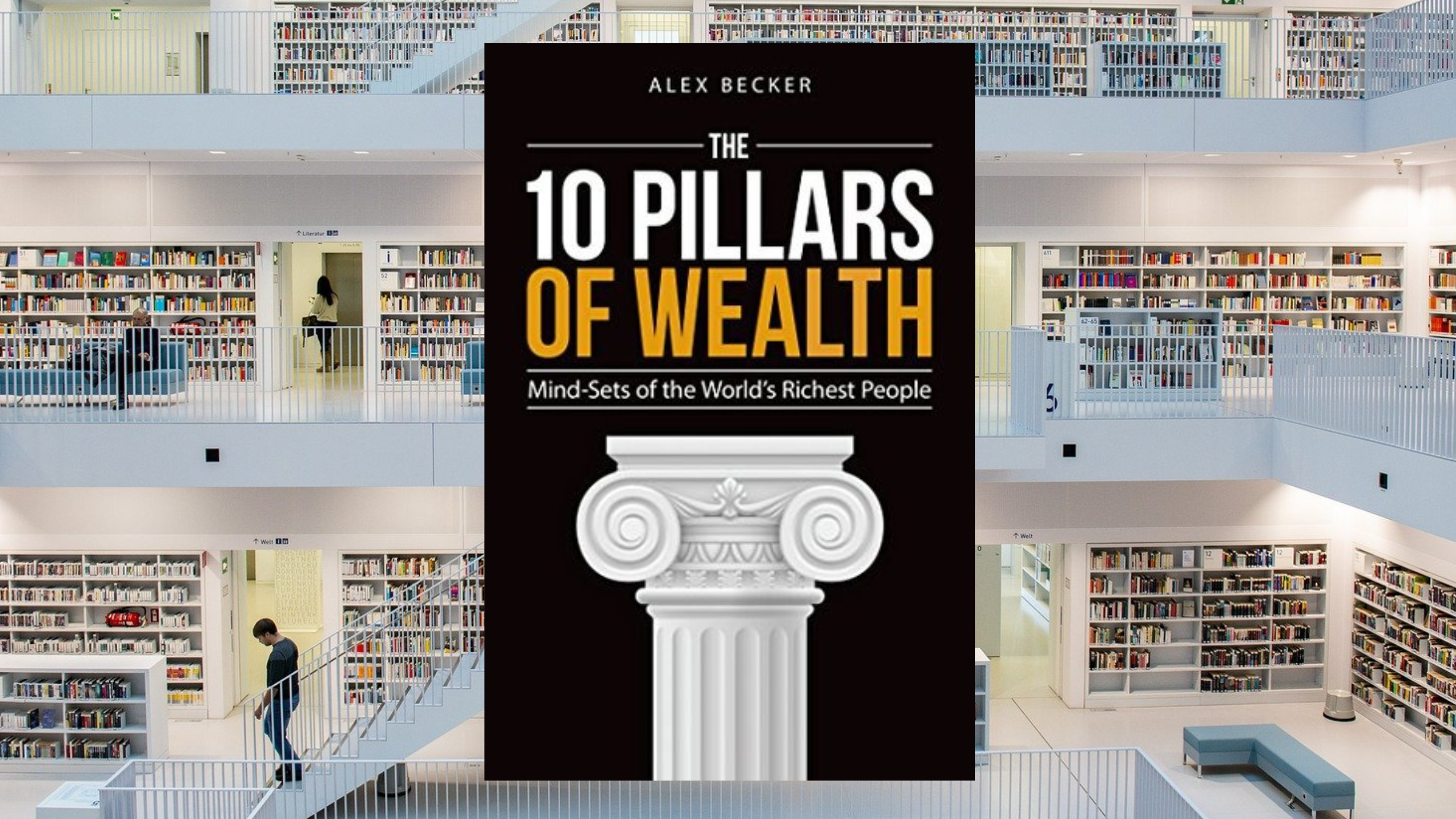
The 10 Pillars of Wealth, by Alex Becker:
The 10 Pillars of Wealth will help you cut through the noise and filter out the nonsense that stops most people from being successful. It's an excellent mix of powerful mindset shifts and extremely practical application that will elevate your business game above all of your competitors.
Not being wealthy has nothing to do with your intrinsic human worth, of course, but becoming wealthy is also not just going to happen by accident. You have to make it happen, you have to will it to happen, you have to align all your efforts and your thinking and your resources toward making it a reality, and it's books - and teachers - like these who can help you rise above the statistics and become rich.
Sample Quotes from the Book:
"By wanting to become wealthy, you are also saying that you want to accept the challenge to be better at making money than 99 percent of the people on this planet. Just by attempting this, you are going to have to accept the fact that you must not just be good, you must be incredible."
“People rarely become successful if they are comfortable in their current situation.”
“It might take you ten years, but if you never give up, you will have something to show for it.”
Read the Full Breakdown: The 10 Pillars of Wealth, by Alex Becker

The View from the Opposition:
No one's ideas are beyond questioning. In this section, I argue the case for the opposition and raise some points that you might wish to evaluate for yourself while reading this book.
#1: This Whole Book Could Have Been One Sentence Long
This is one of the common criticisms that's often leveled against this book, and yes, I get it, but I also don't think it's entirely fair. The ONE Thing is a simple idea, but it's one of those things that "the 7-year-old knows, but the 70-year-old still finds very hard to do."
You could say instead that the ONE Thing of this book - the one goal that the authors had in mind - was to teach people about the ONE Thing and to hammer it into their heads from as many angles as possible so that they would never forget. It took them 200+ pages to do that, but I think they did it very well.
#2: Multitasking Works for Simple Tasks
Multitasking doesn't come out looking all that great in this book, and for a very good reason. It's grossly inefficient, and in order to put forth dedicated effort into your most important work, multitasking has got to go.
That being said, there are plenty of situations where multitasking fits in quite nicely, and where you're not trying to be "100% efficient" anyway. Walking on the treadmill and listening to audiobooks comes to mind, or washing the dishes and listening to audiobooks, etc. I tend to use audiobooks in every example, but you get the idea!
"The test of a first-rate intelligence is the ability to hold two opposed ideas in the mind at the same time and still retain the ability to function.”
-F. Scott Fitzgerald

Questions to Stimulate Your Thinking:
#1: "What’s the ONE Thing that I can do, such that by doing it, everything else would be either easier or unnecessary?"
#2: "What's the ONE Thing I can do in my life that would mean the most to me and the world, such that by doing it everything else would be easier or unnecessary?"
#3: "Why would you ever want to do the second most important thing?
#4: “Why would we even consider multitasking when we’re doing our most important work?”
#5: “If you don’t take care of your body, where will you live?”
#6: "What's the ONE Thing I could do immediately to start using the ONE Thing in my daily life?"
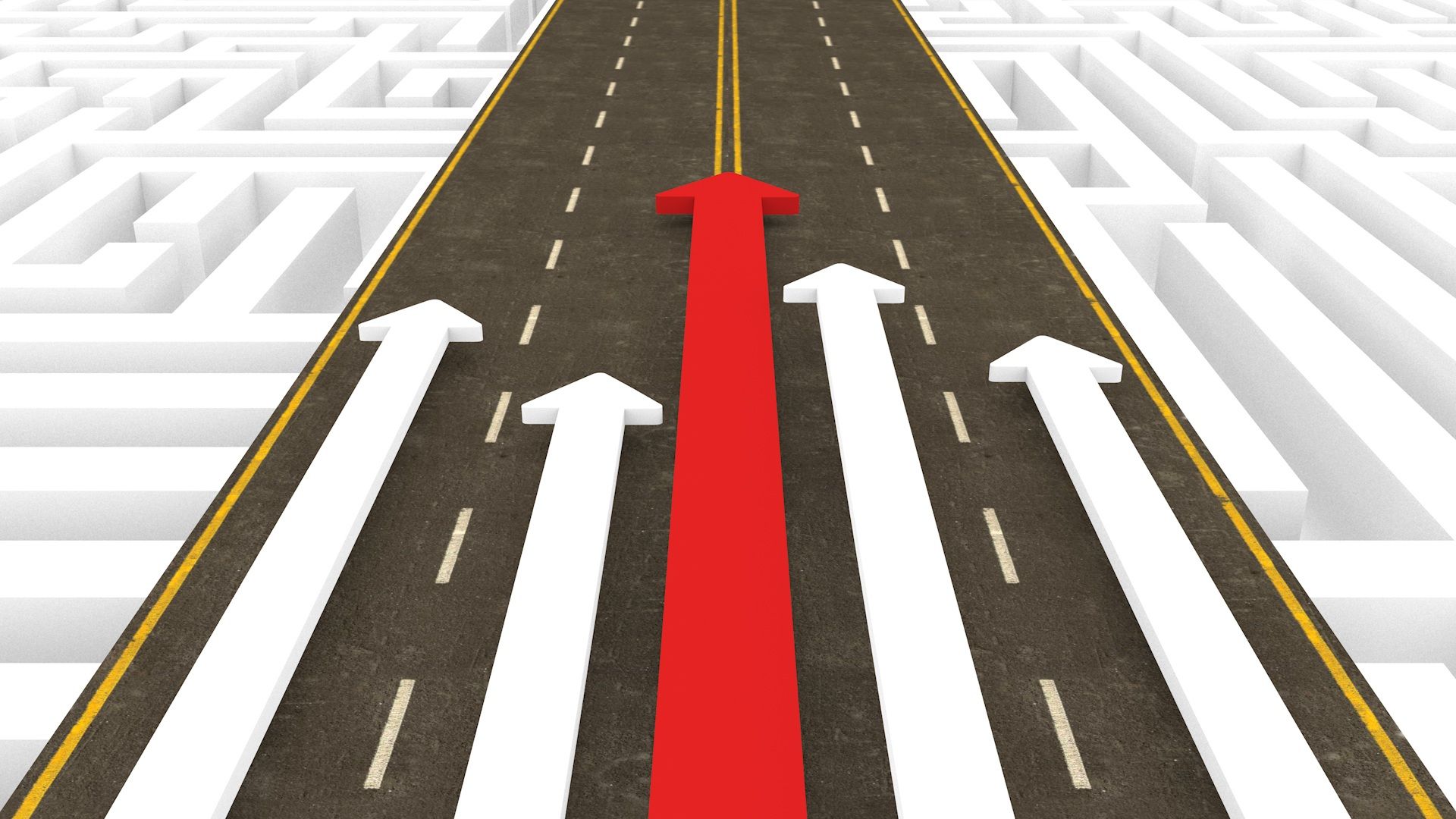
Action Steps:
So you've finished reading. What do you do now?
Reading for pleasure is great, and I wholeheartedly support it. However, when I'm reading for a particular purpose, I am intensely practical. I want a result. I want to take what I've learned and apply it to my one and only life to make it better!
Because that's really what the Great Books all say. They all say: "You must change your life!" So here, below, are some suggestions for how you can apply the wisdom found in this breakdown to improve your actual life.
Please commit to taking massive action on this immediately! Acting on what you've learned here today will also help you solidify it in your long-term memory. So there's a double benefit! Let's begin...
#1: Just ONE Thing
In this breakdown, we've covered 12 different Key Ideas, and I've given you a whole list of related books to check out, plus dozens of other core insights from The ONE Thing itself...but obviously, it all boils down to just ONE THING.
Your ONE Thing right now is to start implementing the ONE Thing philosophy in your daily life.
To help you do that, I've linked to Gary Keller's 66-Day Challenge, which you can follow along with in order to start bringing these ideas to life and propel you toward the accomplishment of your biggest goals.
The current research states that 66 days is the average time it takes to implement any new habit, and so if you commit to using the ONE Thing every single day - asking yourself the Focusing Question, taking action on your ONE Thing, and so on - it will start to become a habit, and radical achievement will start to become your new normal.
This is the ONLY thing you need to do:
Download the PDF, find your ONE Thing, and take massive action. I have enough faith in you to believe that you can do this. You're not just a domino, you're a dynamo!

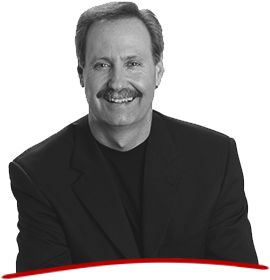
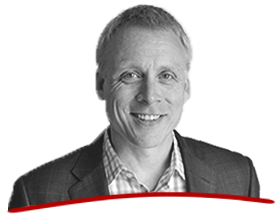
About the Authors:
Gary Keller (left) is the founder and chairman of the board for Keller Williams Realty, the world’s largest real estate franchise by agent count. A finalist for Inc. Magazine’s Entrepreneur of the Year award, Keller is recognized as one of the most influential leaders in the real estate industry, leading his company to 30 consecutive years of growth and profitability.
Keller has written three nationally best-selling books: The Millionaire Real Estate Agent, The Millionaire Real Estate Investor, and SHIFT: How Top Real Estate Agents Tackle Tough Times.
He has helped countless others find success narrowing down their ONE Thing. Unsurprising to those who know him, his greatest achievement is the life he’s built with his wife Mary and their son John.
Before Jay Papasan (right) co-authored the bestselling Millionaire Real Estate series with Gary Keller, he worked as an editor at Harper Collins Publishers. There he worked on such best-selling books as Body-for-Life, by Bill Phillips, and Go for the Goal, by Mia Hamm. Jay is a keynote speaker. Jay also co-owns a successful real estate team affiliated with Keller Williams Realty with his wife Wendy in Austin, TX.
Additional Resources:
The1Thing.com - Official Website
Living Your ONE Thing Community
Tools and Resources from Gary Keller
The ONE Thing Podcast - All Episodes
"It's All About Time" - Jay Papasan at TEDx
Gary Keller on The Tim Ferriss Show
This Book on Amazon:
The ONE Thing, by Gary Keller and Jay Papasan
If You Liked This Book:
Four Thousand Weeks, by Oliver Burkeman
The 10 Pillars of Wealth, by Alex Becker
The Compound Effect, by Darren Hardy
The Four-Hour Workweek, by Tim Ferriss
